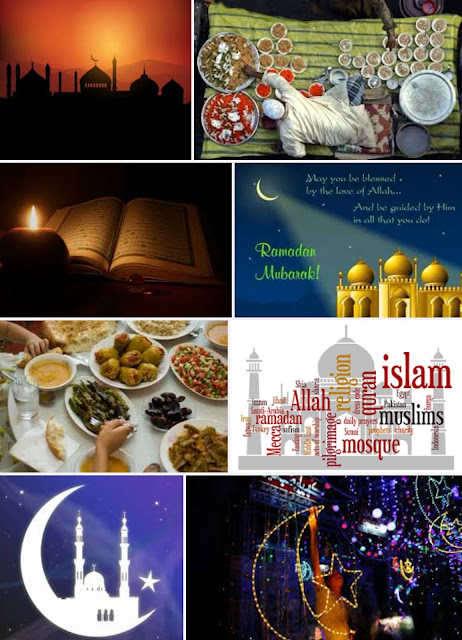Our Muslim brothers around the world have just started to celebrate Ramadan. This is the time where Muslims starts to do fasting in commemoration with the Quran's first revelation to Muhammad that is based on the teachings of Quran. According to Muslims, Ramadan is an important part of their religious routine being practiced every year. This is because Ramadan is a part of the Five Pillars of Islam, which are basic acts of Islam that maximize the foundations of Islamic virtues and life. You would observe that your Muslim friends will be busy starting this point in time because they have a religious obligation to fulfill.
Muslim brothers such as Sunni and Shias will now have to consider performing the virtues, beliefs, and practices of every pillar to value their religion. The entire Muslim world will make up their Islamic life by means of praying for the Supreme Being, which is Allah, performing self-purification, and attending pilgrimage. However, pilgrimage is advised for Muslims who are mentally and physically fit to prevent any risks of accidents or health threats that were experienced from the past pilgrims. Muslims consider Ramadan as sacred because it embodies their conservative religious belief that represents their ideologies and practice according to the teachings of Quran.
 |
| Ramadan is one of the Five Pillars of Islam |
Ramadan may only allow exceptions for those who are suffering from a variety of major health problems and other reasonable causes. These are people who are traveling or have a more important emergency itineraries that are acceptable according to Islamic practice. Patients suffering from a chronic, debilitating, and life-threatening diseases are also exempted on join fardh or the obligatory practice during Ramadan. Breastfeeding mothers, severe menstruation, and elderly patients are also exempted to prevent complications of health threats during Ramadan season.
During Ramadan, Muslims starts fasting from dawn or sunrise until the sunset. This includes refraining themselves consuming any food, smoking, drinking liquids, engaging in physical intercourse, and using unhealthy practices that affect their health. Any Muslim who does not follow these obligatory religious practices will be subjected to a taboo, which is a prohibited practice under the teachings of Islam. Ultra-conservative communities punish Muslim followers who violate this particular practice and belief because it is believed to be an insult to Islam.
During Ramadan, fasting is regarded as the most important spiritual reflection among Muslims. This is to strengthen Sufism, which improves their devotion and worship to Allah, their Supreme Being and to Muhammad, which is the prophet of Allah. As a Muslim follower, each adherent of Islam should be exerting more effort to follow all teachings of Islam.
The act of fasting is believed to direct the heart and sould of Muslims to have a temporary isolation from any worldly activities. The main purpose of fasting is to cleanse the soul and temple of adherents by freeing unwanted impurities that are responsible for the soul to commit taboo and unhealthy practices that might harm other Muslim followers.
As a dedicated follower to Allah, Muslims who are fasting will be able to better practice self-control by driving away any temptation that might affect their spiritual value. Having a self-discipline is an important practice that enables Muslim followers to have the ability to overcome violations or taboos that might take away their purified soul and practice. Being empathetic is important because Muslims will show compassion and courteousness with other Muslims and non-Muslims. And lastly, fasting is all about sacrifice, in which Muslims will have to give something in order to receive a reward that will fulfill their aspirations in return.
Before fasting starts, Muslims observe suhur, which is termed as a pre-meal practice in order to prepare the body for a long period of dieting. Before they are going to start fasting, Muslims will initiate a prayer that is referred to as Fajr, which is to bless the food as well as the fasting practice as they start to cleanse their soul.
When the fasting is over during the day, Muslims will then be allowed to take their fast-breaking meal. This is referred to as iftar.
Fast-breaking meals are usually organized by families, groups, or organizations. They do this in a buffet style, which is a frequent practice during iftar as a traditional way to respect and honor Islamic practice and virtues.
Muslims are prohibited from eating pork because it is a mortal taboo according to the teaching of Islam. This is why the food preference of choices are pastry noodles, bread, battery, fruits, and vegetables.
During Islams, charitable institutions began to generate numerous donations to the needy population. This is one of the most important obligatory under the Pillars of Islam. Many followers prefer to allocate larger donations for believing that they will receive more in return.
As the night falls, Muslim followers will start to their routine Tarawih practice, which is referred to as prayers performed at night. This is a thanksgiving routine to thank Allah and to ask for guidance during the feast of Ramadan.
For all Muslim Brothers around the world, Eid Mubarak
